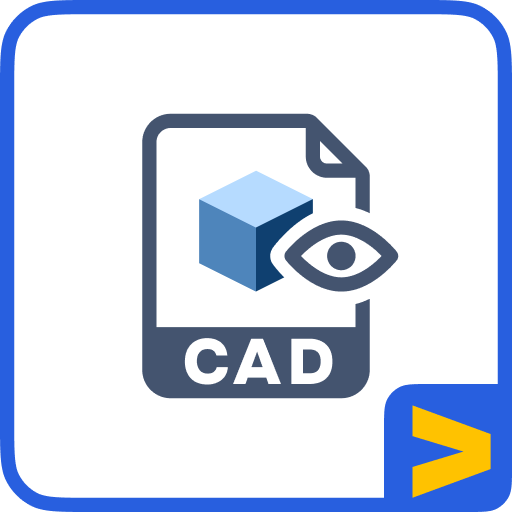
As more teams embrace remote and hybrid work environments, applying Agile methodologies presents new challenges. The core principles of Agile—collaboration, communication, and continuous feedback—can be challenging to maintain when teams are distributed across various locations and time zones.
However, remote and hybrid teams can successfully implement Agile practices with more thoughtful adaptation and strategic use of technology. In this blog, we’ll explore some unique challenges of Agile in these environments and provide actionable solutions to overcome them and Move Work Forward.
1. Challenge: Maintaining Effective Communication and Collaboration
Agile thrives on real-time communication, whether it's during daily standups, sprint planning, or retrospectives. Coordinating across different time zones, schedules, and locations in remote and hybrid setups can lead to delayed responses and fragmented communication.
💡Solution:
- Adopt Asynchronous Communication: Encourage teams to embrace asynchronous tools like Microsoft Teams, Slack or Confluence for discussions, updates, and document sharing. This allows team members to stay informed without needing to be online simultaneously.
- Leverage Video Conferencing for Key Meetings: Schedule essential Agile ceremonies (e.g., sprint planning, daily standups, retrospectives) via video calls, and use screen-sharing features to ensure everyone is on the same page.
- Establish Communication Norms: Define clear communication protocols, including response times, meeting etiquette, and preferred channels, to streamline collaboration and reduce misunderstandings.
2. Challenge: Sustaining Team Cohesion and Engagement
Agile teams rely on strong interpersonal relationships and trust to function effectively. Remote and hybrid setups can isolate team members, decreasing engagement and collaboration.
💡Solution:
- Virtual Team-Building Activities: Schedule regular virtual events, such as coffee chats, trivia games, or online workshops, to foster community and connection within the team.
- Daily Check-Ins: Implement brief, informal check-ins outside the formal standup meetings to gauge team members' feelings and address any concerns early on.
- Celebrate Wins: To motivate morale and teams, celebrate small and large accomplishments through virtual shout-outs, kudos channels, or even rewards.
3. Challenge: Managing Work Visibility and Accountability
Agile requires a high level of transparency regarding work progress. In a remote environment, managers and teams may struggle with visibility, leading to misalignment and reduced accountability.
💡Solution:
- Use Digital Kanban Boards: Tools like Jira, Trello, and Azure DevOps allow teams to track work progress in real time, making it easy for everyone to see what’s in progress, blocked, or completed.
- Regular Updates and Reporting: Encourage team members to provide brief written updates, such as daily progress reports or end-of-day summaries, to keep everyone informed and aligned.
- Define Clear Goals and Responsibilities: During sprint planning, set clear expectations around task ownership and completion timelines to hold everyone accountable and ensure work progresses smoothly.
4. Challenge: Facilitating Effective Agile Ceremonies
Agile ceremonies like sprint planning, daily standups, and retrospectives are crucial for team alignment and continuous improvement. When teams are remote or hybrid, these meetings can become less efficient due to technical issues, distractions, or lack of participation.
💡Solution:
- Timeboxing and Agendas: Set time limits and provide clear agendas ahead of time to keep meetings concise and on track. This helps ensure that discussions remain focused and productive.
- Pre-Meeting Preparation: Ask team members to prepare for key ceremonies, such as retrospectives, by reflecting on their work or identifying improvement areas before the meeting.
- Interactive Tools for Engagement: Utilize digital tools like Miro, MURAL, or Google Jamboard to encourage real-time collaboration during meetings, allowing everyone to contribute ideas visually and interactively.
5. Challenge: Ensuring Continuous Feedback and Improvement
Agile relies on continuous feedback loops, but gathering input and implementing improvements can be difficult when teams are dispersed. This can hinder the team's ability to adapt and optimize their workflows.
💡Solution:
- Feedback Tools: Implement feedback tools to collect continuous feedback from team members and identify areas for improvement.
- Retrospectives with Action Items: Use retrospectives as an opportunity to not only reflect on the sprint but also assign actionable tasks for improvement. Ensure follow-up and accountability for implementing changes in the next sprint.
- Foster a Feedback Culture: Encourage an open culture where feedback is regularly shared, both positive and constructive, so remote team members feel comfortable expressing their thoughts.
6. Challenge: Balancing Flexibility with Structure
Remote work offers flexibility, but this can lead to misalignment if there isn’t enough structure in place. Agile teams need to balance the flexibility that remote work offers with the structured cadence of Agile processes.
💡Solution:
- Core Hours and Flexibility: Define core working hours when all team members are expected to be available for key meetings and collaboration while allowing flexibility outside of these hours for focused work.
- Consistency in Agile Rituals: Stick to a regular cadence for Agile ceremonies, sprints, and review cycles to maintain a sense of structure, even in a flexible work environment.
Applying Agile in remote and hybrid environments may require some adjustments, but it is entirely feasible with the right tools, processes, and mindset.
By focusing on communication, team engagement, work visibility, and continuous feedback, Agile teams can remain productive and cohesive regardless of where they work from. The key is to be flexible in implementing Agile while maintaining the core principles that drive collaboration and continuous improvement.
Move Work Forward provides a powerful suite of tools designed to enhance collaboration and communication in distributed teams, making it an excellent solution for overcoming these common Agile challenges. With integrations like the Advanced Microsoft Teams Jira Connector and Azure DevOps for Jira, Move Work Forward helps Agile teams stay aligned and informed across platforms, streamlining workflows and ensuring real-time visibility of tasks and updates.
For teams looking to improve their remote or hybrid Agile practices, Move Work Forward’s integrations enable seamless connections between Jira, Azure DevOps, Microsoft Teams, and Confluence. This helps teams collaborate efficiently, track work progressively, and share critical updates across platforms without disruptions. Integrating these tools into your Agile workflow allows your team to maintain strong communication, transparency, and accountability no matter where they are located.
Ready to enhance your Agile processes in a remote or hybrid setting? Explore how Move Work Forward can empower your team to thrive in any environment by visiting our website today!





































































.png)




